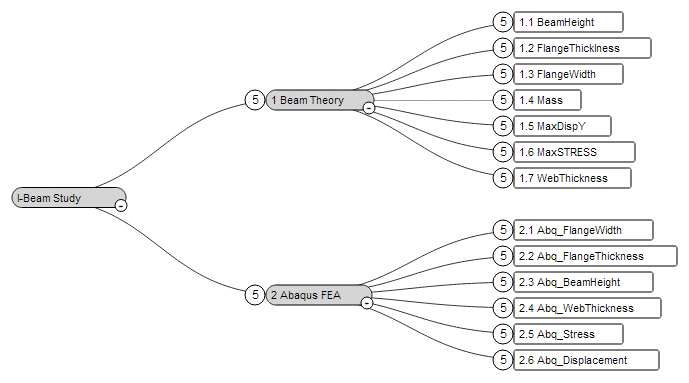Parameter Grouping | ||||
|
| |||
You display the parameter hierarchy view by selecting  from the Define page. You can create a group from the parameter hierarchy view by clicking on the parent group and selecting Add Child Group. You can then drag parameters into the new group. By default, Results Analytics assigns a priority of 5 to a group. You can modify the priority of a group, but you cannot assign an objective to a group. For example, the following figure shows a data set for an I-beam study that organizes the parameters into two groups—one for parameters associated with beam-theory calculations and a second for parameters associated with Abaqus finite element analysis.
from the Define page. You can create a group from the parameter hierarchy view by clicking on the parent group and selecting Add Child Group. You can then drag parameters into the new group. By default, Results Analytics assigns a priority of 5 to a group. You can modify the priority of a group, but you cannot assign an objective to a group. For example, the following figure shows a data set for an I-beam study that organizes the parameters into two groups—one for parameters associated with beam-theory calculations and a second for parameters associated with Abaqus finite element analysis. 
You use groups to help you organize your data. Results Analytics uses the groups you create in the Define page in other pages, such as the Preview, Collaborate, and Recommend pages. Results Analytics also uses groups to calculate the final weight factor for a parameter or group of parameters. The ranking engine, in turn, uses the final weight factor to score and rank the alternatives. (The scoring and ranking process uses only the parameters in a group for which you have defined objectives and/or thresholds.)
You can create groups of parameters when you import a data set from a Microsoft Excel® or .csv file using the groupname.parametername format in the first row of the file.